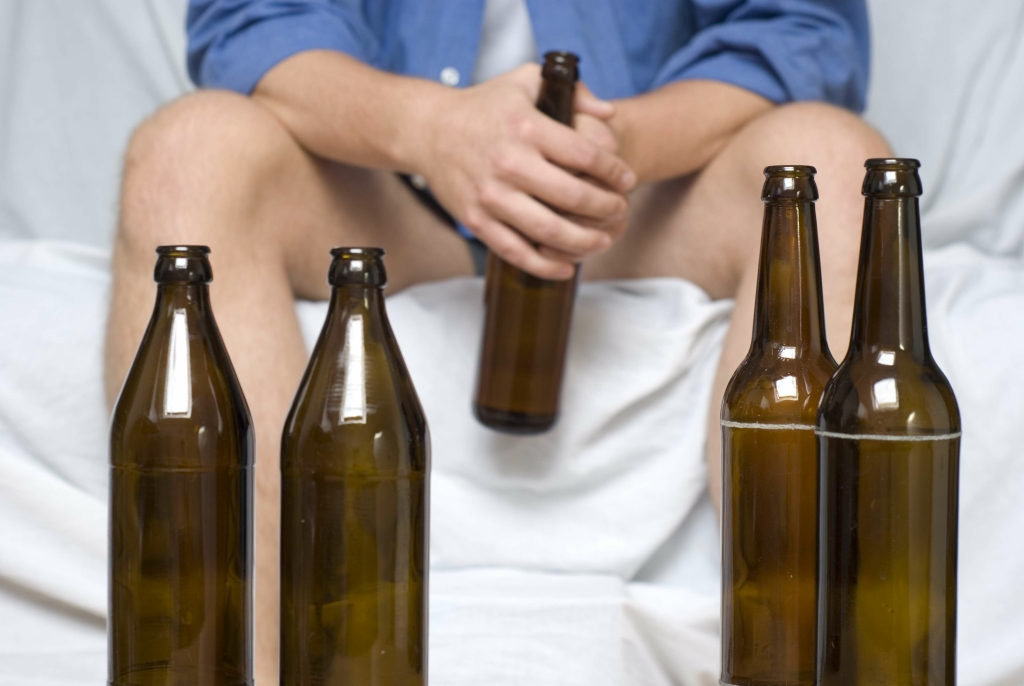Content
This is important to keep in mind when ruling out other potential causes, like mental health conditions such as bipolar disorder. While drinking alcohol is considered socially acceptable, long-term addiction to alcohol is not. People who are addicted to alcohol behave differently as they start to try to hide https://www.healthworkscollective.com/how-choose-sober-house-tips-to-focus-on/ their drinking from loved ones. Stage four, or the end-stage of alcohol abuse, is considered the most severe. One warning sign of stage four of alcoholism can be when you feel as though you need to drink to live. At this stage, withdrawal symptoms can be unbearable, often driving individuals to relapse.
What are the 5 most common causes of alcoholism?
- Environment.
- Age.
- Mental Health.
- Combining Substances.
- Family history.
Because denial is common, you may feel like you don't have a problem with drinking. You might not recognize how much you drink or how many problems in your life are related to alcohol use. Listen to relatives, friends or co-workers when they ask you to examine your drinking habits or to seek help. Consider talking with someone who has had a problem with drinking but has stopped. Sober living homes typically accept individuals at all stages of recovery.
Careers - Join Our Team
Our addiction recovery services at HMHI offer an array of treatment programs for all levels of excessive alcohol consumption. For many people, alcohol has a strong effect but when consumed in a moderate amount, it is not unhealthy or dangerous. Over time though, excessive drinking can develop into alcohol use disorder (AUD), or more commonly known as alcoholism. AUD is characterized by cravings, physical and emotional dependence on alcohol, uncontrollable alcohol use, and negative emotions when not drinking. According to the National Institute on Alcoholism and Alcohol Abuse (NIAAA), an estimated 15 million people in the United States have AUD.
The Joint Commission for the Accreditation of Healthcare Organizations evaluates quality of care provided by healthcare organizations. Footprints has the Gold Seal of Approval, which is the highest standard. Alcohol use that turns into a use disorder develops in stages. Our supportive admissions navigators are available 24/7 to assist you or your family. However, giving up alcohol right away isn’t sustainable or desirable for most people.
HIDDEN DRINKING/DRINKING ALONE
Hence, consuming alcohol as your primary source of fuel will lead to poor nutrition and weight loss. Get professional help from an online addiction and mental health counselor from BetterHelp. Treatment professionals are trained to determine if an individual does or does not meet the requirements for a substance use disorder diagnosis. Typically, this is done by completing an in-depth assessment. Binge drinking and alcohol abuse can start in the teenage years or even earlier, though adults and the elderly may pick up the habit too. Join the thousands of people that have called a treatment provider for rehab information.

Owl’s Nest understands the depths of struggles you’ve encountered throughout your addiction recovery process. Discovering the warning signs of alcoholism in a loved one can be heartbreaking. Thus, it’s vital to embrace healthy addiction treatment options. These professionals may include psychiatrists, addictionologists, or behavioral health therapists trained in substance use disorder treatment. After detox, it’s highly recommended to seek treatment for alcohol addiction. This will help identify and treat underlying reasons for the addiction.
Behavioral Treatments
Many people that suffer from alcoholism even struggle to get or maintain a job. For example, early symptoms of alcoholism can simply be seen as risk-taking behaviors or signs of being overly active, impulsive, or disinhibited. As a result, alcohol contributes to about 18.5 percent of ED visits and 22.1 percent of overdose deaths related to prescription opioids. It is not uncommon for people struggling with alcohol abuse to have a dozen drinks or more a day. Many alcohol drinkers feel the urge to drink more in order to feel the original effects of their alcohol consumption. If your friend or family member seems to be drinking a lot more or is simply displaying inexplicable behavioral changes, it is important to take note.
They also may sneak drinks from a bottle in their desk or car. This hidden drinking and secretive lifestyle is a huge red flag when it comes to alcoholism and shouldn’t be ignored. Despite saying they’re going to have “just one drink,” high-functioning alcoholics are unable to limit their alcohol consumption. They tend to drink heavily while at a party or bar, and when it comes time for last call, they quickly down their drink then run to the bar to order another.
Social or moderate drinking can become problematic if it begins to cause unpleasant effects. When an individual has 5 or more drinks in one day, it is considered binge drinking. For example, many individuals attempt to cover their alcohol abuse issue by instead drinking sober house in private and ultimately isolating themself from other people. When this occurs, it makes it more difficult for family members and friends to intercede and ultimately help their loved ones. If an individual has a mild alcohol abuse issue, it can be easily overlooked.
In a recent study by The Recovery Village, 44% of respondents reported abusing alcohol in an attempt to ease uncomfortable feelings that stem from underlying anxiety. Any amount of alcohol during pregnancy can cause fetal alcohol syndrome, and there are no treatments for it. Alcohol can affect babies before their mothers even know they are pregnant.
Alcohol has both short and long-term risks, including addiction. The side effects of regular alcohol use can impact your mind, body, and social wellbeing. Many alcoholics use denial or aggression as their chosen mode of avoidance, but others have a seemingly rational explanation for their behavior. Many alcoholics take part in activities that they have no recollection of the next day – such as dancing on bars, going home with strangers, doing drugs, having sex, and more. At the time, they may not seem extremely intoxicated, but when asked about their behavior the next day, they’re unable to remember what happened. Alcohol abuse is drinking alcohol to the point where it interferes with your daily life.
- The practice of dual diagnosis treatment is promising, due to the growing numbers of recovering individuals with co-occurring disorders.
- Many people with alcohol use disorder hesitate to get treatment because they don't recognize that they have a problem.
- It’s not uncommon to see high-functioning alcoholics replace meals with a few drinks.
- Addicts and alcoholics persist in their symptoms no matter what, which leads to problems.
- The CDC defines binge drinking as drinking that brings your blood alcohol concentration (BAC) to 0.08% or more.
This process leads to decreased digestive movement and secretions of food through the digestive tract. Your digestive secretions play an essential role in healthy digestion. They are responsible for breaking down food into basic micro and macronutrients that are later absorbed and used in the body. The psychological component of addiction does not refer to the alcohol effects on an individual’s mental state, such as disordered thinking. Instead, it refers to how an individual’s actions and thoughts become geared towards acquiring alcohol and consuming it, to the exclusion of paramount responsibilities.
